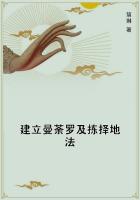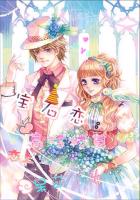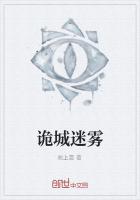Albert was going, naturally.That is, he had at first planned to go, then--after the disastrous call at the parsonage--decided that he would go under no circumstances, and at the last changed his mind once more to the affirmative.Miss Madeline Fosdick, Jane Kelsey's friend, was responsible for the final change.She it was who had sold him his ticket and urged him to be present.He and she had met several times since the first meeting at the post-office.Usually when they met they talked concerning poetry and kindred lofty topics.Albert liked Miss Fosdick.It is hard not to like a pretty, attractive young lady who takes such a flattering interest in one's aspirations and literary efforts.The "high brow chit-chats"--quoting Miss Kelsey again--were pleasant in many ways;for instance, they were in the nature of a tonic for weakened self-esteem, and the Speranza self-esteem was suffering just at this time, from shock.
Albert had, when he first heard that the dance was to take place, intended inviting Helen to accompany him.He had taken her acceptance for granted, he having acted as her escort to so many dances and social affairs.So he neglected inviting her and then came Issy's mischief-making remarks and the trouble which followed.
So, as inviting her was out of the question, he resolved not to attend, himself.But Miss Fosdick urged so prettily that he bought his ticket and promised to be among those present.
"Provided, of course," he ventured, being in a reckless mood, "that you save me at least four dances." She raised her brows in mock dismay.
"Oh, my goodness!" she exclaimed."I'm afraid I couldn't do that.
Four is much too many.One I will promise, but no more."However, as he persisted, she yielded another.He was to have two dances and, possibly an "extra.""And you are a lucky young man," declared Jane Kelsey, who had also promised two."If you knew how many fellows have begged for just one.But, of course," she added, "THEY were not poets, second editions of Tennyson and Keats and all that.It is Keats who was the poet, isn't it, Madeline?" she added, turning to her friend.
"Oh, I'm so glad I got it right the first time.I'm always mixing him up with Watts, the man who invented the hymns and wrote the steam-engine--or something."The Wednesday evening in the middle of September was a beautiful one and the hotel was crowded.The Item, in its account the following week, enumerating those present, spoke of "Our new residents, Mrs.Fletcher Story Fosdick and Miss Madeline Fosdick, who are to occupy the magnificent residence now about being built on the Inlet Hill by their husband and father, respectively, Fletcher Story Fosdick, Esquire, the well-known New York banker."The phrasing of this news note caused much joy in South Harniss, and the Item gained several new and hopeful subscribers.
But when the gushing reporter responsible for this added that "Miss Fosdick was a dream of loveliness on this occasion" he was stating only the truth.She was very beautiful indeed and a certain young man who stepped up to claim his first dance realized the fact.The said young man was outwardly cool, but red-hot within, the internal rise in temperature being caused by the sight of Helen Kendall crossing the floor arm in arm with Edwin Raymond.Albert's face was white with anger, except for two red spots on his cheeks, and his black eyes flashed.Consequently he, too, was considered quite worth the looking at and feminine glances followed him.
"Who is that handsome, foreign-looking fellow your friend is dancing with?" whispered one young lady, a guest at the hotel, to Miss Kelsey.Jane told her.
"But he isn't a foreigner," she added."He lives here in South Harniss all the year.He is a poet, I believe, and Madeline, who knows about such things--inherits it from her mother, I suppose--says his poetry is beautiful."
Her companion watched the subject of their conversation as, with Miss Fosdick, he moved lightly and surely through the crowd on the floor.
"He LOOKS like a poet," she said, slowly."He is wonderfully handsome, so distinguished, and SUCH a dancer! But why should a poet live here--all the year? Is that all he does for a living--write poetry?"
Jane pretended not to hear her and, a masculine friend coming to claim his dance, seized the opportunity to escape.However, another "sitter out" supplied the information.
"He is a sort of assistant bookkeeper at the lumber yard by the railroad station," said this person."His grandfather owns the place, I believe.One would never guess it to look at him now....
Humph! I wonder if Mrs.Fosdick knows.They say she is--well, not democratically inclined, to say the least."Albert had his two promised dances with Madeline Fosdick, but the "extra" he did not obtain.Mrs.Fosdick, the ever watchful, had seen and made inquiries.Then she called her daughter to her and issued an ultimatum.
"I am SO sorry," said the young lady, in refusing the plea for the "extra." "I should like to, but I--but Mother has asked me to dance with a friend of ours from home.I--I AM sorry, really."She looked as if she meant it.Albert was sorry, too.This had been a strange evening, another combination of sweet and sour.He glanced across the floor and saw Helen and the inevitable Raymond emerge together from the room where the refreshments were served.
Raging jealousy seized him at the sight.Helen had not been near him, had scarcely spoken to him since his arrival.He forgot that he had not been near nor spoken to her.
He danced twice or thrice more with acquaintances, "summer" or permanent, and then decided to go home.Madeline Fosdick he saw at the other end of the room surrounded by a group of young masculinity.
Helen he could not see at the moment.He moved in the direction of the coatroom.Just as he reached the door he was surprised to see Ed Raymond stride by him, head down and looking anything but joyful.















